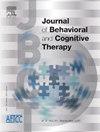Psychiatry in the context of changing cultural norms: Mental disorders among migrants and refugees
IF 1.6
Q3 PSYCHIATRY
引用次数: 0
Abstract
Context
The study aimed to determine the impact of cultural change on the mental health of migrants and refugees in the United States, including an analysis of mental disorders (depression, anxiety disorders, post-traumatic stress disorder (PTSD), social isolation, stress, and adjustment difficulties) associated with adaptation to new cultural norms and living conditions.
Method
The methodology included an examination of regulatory documents, clinical case studies, comparative analysis, and both theoretical and content analysis. The impact of migration on the mental health of migrants and refugees in the United States was addressed, focusing on legal, social and medical aspects. Real-world cases from refugee clinics in New York (2014–2016) were analysed based on data from U.S. mental health agencies. Committee for Refugees and Immigrants, American Psychological Association, National Immigrant Justice Centre. Unique data were the quantitative and qualitative indicators indicating a high proportion of PTSD, depression and anxiety among refugees (up to 70% of patients).
Results
The study determined that the key barriers to improving mental health are language and culture, uncertain legal status, and lack of access to social support. The results confirmed that a comprehensive approach, including the integration of psychotherapy, medication and social adaptation, is effective for the rehabilitation of this population. The study also emphasised the need to expand health insurance programmes, introduce culturally sensitive approaches to treatment, and develop digital tools for psychological care.
Conclusions
These findings can be used as a basis for further research and the development of new strategies to support the mental health of these groups.
文化规范变化背景下的精神病学:移民和难民的精神障碍
本研究旨在确定文化变化对美国移民和难民心理健康的影响,包括分析与适应新文化规范和生活条件相关的精神障碍(抑郁症、焦虑症、创伤后应激障碍(PTSD)、社会隔离、压力和适应困难)。方法研究方法包括查阅规范性文件、临床病例研究、比较分析、理论分析和内容分析。讨论了移民对美国境内移民和难民心理健康的影响,重点是法律、社会和医疗方面。根据美国精神卫生机构的数据,分析了纽约难民诊所(2014-2016年)的真实案例。难民和移民委员会,美国心理协会,国家移民司法中心。独特的数据是定量和定性指标,表明难民中创伤后应激障碍、抑郁和焦虑的比例很高(高达70%的患者)。结果研究发现,影响心理健康的主要障碍是语言和文化、不确定的法律地位以及缺乏社会支持。结果证实,包括心理治疗、药物治疗和社会适应相结合的综合方法对这一人群的康复是有效的。该研究还强调,有必要扩大医疗保险计划,引入对文化敏感的治疗方法,并开发用于心理护理的数字工具。结论本研究结果可作为进一步研究的基础和制定新的策略来支持这些群体的心理健康。
本文章由计算机程序翻译,如有差异,请以英文原文为准。
求助全文
约1分钟内获得全文
求助全文
来源期刊

Journal of Behavioral and Cognitive Therapy
Psychology-Clinical Psychology
CiteScore
3.30
自引率
0.00%
发文量
38
审稿时长
60 days
 求助内容:
求助内容: 应助结果提醒方式:
应助结果提醒方式:


